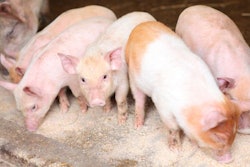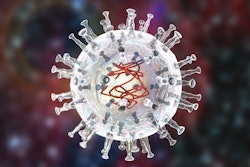
USDA, National Association of State Departments of Agriculture, National Pork Board and National Pork Producers Council will coordinate and share information
As part of its continued efforts to prevent the introduction of African swine fever (ASF) into the United States, the United States Department of Agriculture (USDA) is announcing a new partnership with the National Association of State Departments of Agriculture (NASDA), National Pork Board and National Pork Producers Council. Through enhanced coordination and information sharing, the four entities will work to improve ASF prevention and preparedness efforts.
“A detection of ASF in U.S. pigs could devastate the pork industry,” said USDA Under Secretary for Marketing and Regulatory Programs Jenny Lester Moffitt. “Prevention is the best way we can protect the United States from ASF. USDA has many efforts geared at preventing the introduction of ASF, and this new partnership with NASDA and industry is one more tool we can use in the fight.”
ASF is a deadly, highly contagious viral disease that affects domestic and wild pigs. It does not impact human health but quickly spreads between swine populations. People can also unknowingly spread the disease on their clothing, farming equipment, or by transporting uncooked pork products. African swine fever has never been detected in the United States but was discovered in the Dominican Republic and Haiti in 2021, the closest detections to the United States in decades.
This collaborative effort will help ensure response plans are consistent and have been tested, and that producers receive the information and tools they need to protect their herds.
“This new effort builds on the expansive work that USDA has continued to do to keep ASF out of the U.S.,” said Moffitt. “We strongly value our longstanding working relationship with states and the pork industry, and this formal partnership will help ensure a swift and coordinated response in the event ASF is detected here.”
More information about USDA’s efforts to prevent ASF, including downloadable materials and interactive training guides, is available at the Protect Our Pigs website.
















